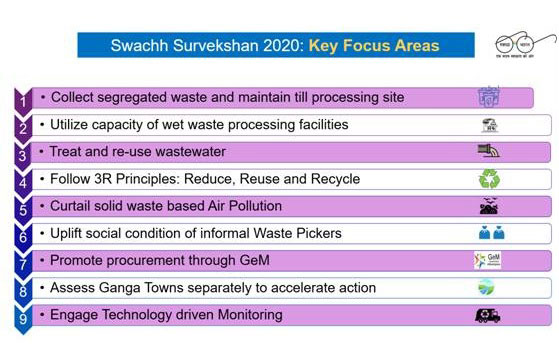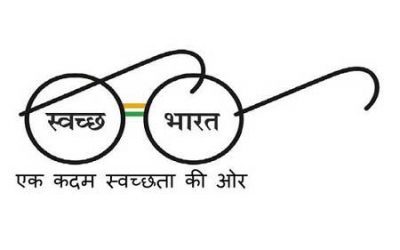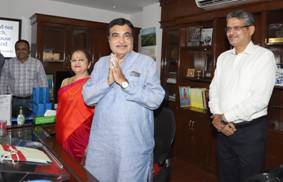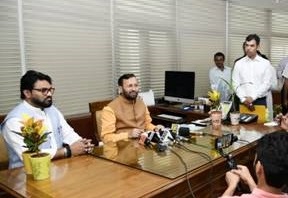Hardeep Singh Puri, Minister of State (Independent Charge) for Housing & Urban Affairs today launched the Swachh Survekshan 2020 (SS 2020), the fifth edition of the annual cleanliness survey conducted by the Ministry of Housing and Urban Affairs (MoHUA), said a PIB release. Alongside, the Swachh Survekshan 2020 Toolkit, SBM Water PLUS Protocol and Toolkit, Swachh Nagar – an integrated waste management app and AI enabled mSBM App were also launched.
The event was webcast live for states and cities to witness the launches from across the country. The event also saw the release of a special Swachh Survekhan theme song featuring Kangana Ranaut, singers Kailash Kher and Monali Thakur. Durga Shanker Mishra, Secretary, MoHUA, V.K. Jindal, Joint Secretary & Mission Director, and representatives from serval urban local bodies were also present at the launch.
Speaking at the launch event, Puri said, “Earlier this year, we had launched Swachh Survekshan League 2020 (SS League 2020) with the objective of sustaining the on ground performance of cities along with continuous monitoring of service level performance on cleanliness. Today’s event for launching the Swachh Survekshan 2020, with field survey to be conducted in January 2020, is particularly significant since it gives us the opportunity to reaffirm once again our promise for a Clean, Garbage Free and Sanitary “New India”, by not only sustaining the gains that we have made under the SBM, but also by providing a roadmap to institutionalize the concept of total Swachhata among all our cities.”

 The Swachh Survekshan 2020 Toolkit launched by the Minister contains the detailed survey methodology and component indicators with scores to help cities to prepare themselves for the survey.
The Swachh Survekshan 2020 Toolkit launched by the Minister contains the detailed survey methodology and component indicators with scores to help cities to prepare themselves for the survey.
Durga Shanker Mishra, Secretary, MoHUA during his presentation on SS 2020 mentioned, “Every year, the Swachh Survekshan is redesigned innovatively, to ensure that the process becomes more and more robust, with focus on sustaining the changed behaviours.” He also elaborated on the key focus areas of SS 2020, and highlighted the key differentiators of SS 2020 from SS 2019.
In line with the focus on continuity and sustainability, a major focus of SS 2020 indicators, both for the quarterly and annual assessments – has been on complete faecal sludge management and waste water treatment, in line with the Government’s promise made in its election manifesto. Reiterating its commitment to the cause, the Ministry also launched the Water PLUS Protocol and the accompanying Toolkit.
Moving beyond ODF, ODF+ and ODF++, the Water PLUS protocol aims to provide a guideline for cities and towns to ensure that no untreated wastewater is released into the environment thereby enabling sustainability of the sanitation value chain. This is in line with the Government’s focus on water conversation and reuse under the Jal Shakti Abhiyan and also aligns with the Sustainable Development Goals on clean water and sanitation. The toolkit provides the detailed SBM Water Plus protocol laid down by MoHUA, along with declaration formats to be obtained from various stakeholders, that wards / work circles (in case under jurisdiction of development authority) and cities are required to submit, as part of the SBM Water Plus declaration and certification process.
SS 2020 will be conducted in January 2020. A major thrust of Swachh Survekshan has always been on citizen engagement, be it through citizen feedback or indicators involving citizen participation. This year, the citizen-centric focus has been enhanced substantially through verification of the progress made by cities on Swachhata through direct responses from citizens. Continuing with its focus on providing integrated waste management solutions to Urban Local Bodies (ULBs) and citizens, MoHUA also launched the Swachh Nagar Mobile App. This app, with features such as tracking of waste collection by ULBs through route and vehicle monitoring, notification to citizens, online collection of user fee for waste collection and an effective grievance redressal mechanism, will be the answer to several issues that hinder effective waste management such as lack of monitoring, collection of segregated waste, and tracking the movement of waste vehicles and waste pickers, amongst others.
The event also saw the launch of AI enabled mSBM App, a mobile app developed by the National Informatics Centre (NIC) that helps detect the beneficiary face and toilet seat in the photo uploaded using Artificial Intelligence (AI) model at the backend. This app will not only facilitate the applicants of Individual Household Toilets (IHHL) under SBM-U know the status of their application in real-time after uploading the photograph but also help them upload the correct photo. The App will also help the respective ULB nodal officer to verify and approve the application thereby significantly reducing the processing time for applicants. The launch event ended with the release of the Swachh Survekshan theme song. While Padmashree awardee Kailash Kher and Monali Thakur have lent their voice to the song titled ‘Swachhata Adhikar Hai’, national award winning actor, Kangana Ranaut has featured in the video.














0 Comments